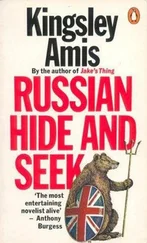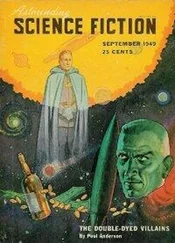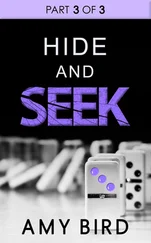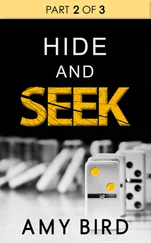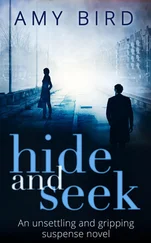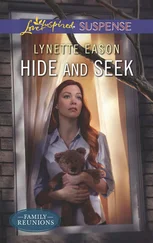Уилки Коллинз - Hide and Seek
Здесь есть возможность читать онлайн «Уилки Коллинз - Hide and Seek» весь текст электронной книги совершенно бесплатно (целиком полную версию без сокращений). В некоторых случаях можно слушать аудио, скачать через торрент в формате fb2 и присутствует краткое содержание. Год выпуска: 2005, Жанр: Классическая проза, на английском языке. Описание произведения, (предисловие) а так же отзывы посетителей доступны на портале библиотеки ЛибКат.
- Название:Hide and Seek
- Автор:
- Жанр:
- Год:2005
- ISBN:нет данных
- Рейтинг книги:5 / 5. Голосов: 1
-
Избранное:Добавить в избранное
- Отзывы:
-
Ваша оценка:
- 100
- 1
- 2
- 3
- 4
- 5
Hide and Seek: краткое содержание, описание и аннотация
Предлагаем к чтению аннотацию, описание, краткое содержание или предисловие (зависит от того, что написал сам автор книги «Hide and Seek»). Если вы не нашли необходимую информацию о книге — напишите в комментариях, мы постараемся отыскать её.
Hide and Seek — читать онлайн бесплатно полную книгу (весь текст) целиком
Ниже представлен текст книги, разбитый по страницам. Система сохранения места последней прочитанной страницы, позволяет с удобством читать онлайн бесплатно книгу «Hide and Seek», без необходимости каждый раз заново искать на чём Вы остановились. Поставьте закладку, и сможете в любой момент перейти на страницу, на которой закончили чтение.
Интервал:
Закладка:
“I answered all the clergyman’s questions quite straightforward, telling him everything I knew from beginning to end. When I’d done, Peggy starts up from the bundle and says, ‘Mind, sir, whatever you do, the child’s not to be took away from this person here, and sent to the workhouse. The mother give it to her on that very bed, and I’m a witness of it.’ ‘And I promised to be a mother to the baby, sir,’ says I. He turns round to me, and praises me for what I done, and says nobody shall take it away from me, unless them as can show their right comes forward to claim it. ‘But now,’ says he, ‘we must think of other things. We must try and find out something about this poor woman who has died in such a melancholy way.’
“It was easier to say that than to do it. The poor thing had nothing with her but a change of linen for herself and the child, and that gave us no clue. Then we searched her pocket. There was a cambric handkerchief in it, marked ‘M. G.;’ and some bits of rusks to sop for the child; and the sixpence and halfpence which she had when I met her; and beneath all, in a corner, as if it had been forgotten there, a small hair bracelet. It was made of two kinds of hair—very little of one kind, and a good deal of the other. And on the flat clasp of the bracelet there was cut in tiny letters, ‘In memory of S. G.‘ I remember all this, sir, for I’ve often and often looked at the bracelet since that time.
“We found nothing more—no letters, or cards, or anything. The clergyman said that the ‘M. G.’ on the handkerchief must be the initials of her name; and the ‘S. G.’ on the bracelet must mean, he thought, some relation whose hair she wore as a sort of keepsake. I remember Peggy and me wondering which was S. G.‘s hair; and who the other person might be, whose hair was wove into the bracelet. But the clergyman he soon cut us short by asking for pen, ink, and paper directly. ‘I’m going to write out an advertisement,’ says he, ‘saying how you met with the young woman, and what she was like, and how she was dressed.’ ‘Do you mean to say anything about the baby, sir?’ says I. ‘Certainly,’ says he; ‘it’s only right, if we get at her friends by advertising, to give them the chance of doing something for the child. And if they live anywhere in county, I believe we shall find them out; for the Bangbury Chronicle, into which I mean to put the advertisement, goes everywhere in our part of England.’
“So he sits down, and writes what he said he would, and takes it away to be printed in the next day’s number of the newspaper. ‘If nothing comes of this,’ says he, ‘I think I can manage about the burial with a charitable society here. I’ll take care and inform you the moment the advertisement’s answered.’ I hardly know how it was, sir; but I almost hoped they wouldn’t answer it. Having suckled the baby myself, and kissed its mother before she died, I couldn’t make up my mind to the chance of its being took away from me just then. I ought to have thought how poor we were, and how hard it would be for us to bring the child up. But, somehow, I never did think of that—no more did Peggy—no more did Jemmy; not even when we put the baby to bed that night along with our own.
“Well, sir, sure enough, two days after the advertisement come out, it was answered in the cruelest letter I ever set eyes on. The clergyman he come to me with it. ‘It was left this evening,’ says he, ‘by a strange messenger, who went away directly. I told my servant to follow him; but it was too late—he was out of sight.’ The letter was very short, and we thought it was in a woman’s handwriting—a feigned handwriting, the clergyman said. There was no name signed, and no date at top or bottom. Inside it there was a ten-pound bank-note; and the person as sent it wrote that it was enclosed to bury the young woman decently. ‘She was better dead than alive’—the letter went on—‘after having disgraced her father and her relations. As for the child, it was the child of sin, and had no claim on people who desired to preserve all that was left of their good name, and to set a moral example to others. The parish must support it if nobody else would. It would be useless to attempt to trace them, or to advertise again. The baby’s father had disappeared, they didn’t know where; and they could hold no communication now with such a monster of wickedness, even if he was found. She was dead in her shame and her sin; and her name should never be mentioned among them she belonged to henceforth for ever.’
“This was what I remember in the letter, sir. A shocking and unchristian letter I said; and the clergyman he said so too.
“She was buried in the poor corner of the churchyard. They marked out the place, in case anybody should ever want to see it, by cutting the two letters M. G., and the date of when she died, upon a board of wood at the head of the grave. The clergyman then give me the hair bracelet and the handkerchief, and said, ‘You keep these as careful as you keep the child; for they may be of great importance one of these days. I shall seal up the letter (which is addressed to me) and put it in my strong box.’ He’d asked me, before this, if I’d thought of what a responsibility it was for such as me to provide for the baby. And I told him I’d promised, and would keep my promise, and trust to God’s providence for the rest. The clergyman was a very kind gentleman, and got up a subscription for the poor babe; and Peggy Burke, when she had her benefit before the circus left Bangbury, give half of what she got as her subscription. I never heard nothing about the child’s friends from that time to this; and I know no more who its father is now than I did then. And glad I am that he’s never come forward—though, perhaps, I oughtn’t to say so. I keep the hair bracelet and the handkerchief as careful as the clergyman told me, for the mother’s sake as well as the child’s. I’ve known some sorrow with her since I took her as my own; but I love her only the dearer for it, and still think the day a happy day for both of us, when I first stopped and suckled her by the road-side.
“This is all I have to say, if you please, sir, about how I first met with little Mary; and I wish I could have told it in a way that was more fit for such as you to hear.”
CHAPTER V.
MADONNA’S MISFORTUNE.
As the clown’s wife ended her narrative, but little was said in the way of comment on it by those who had listened to her. They were too much affected by what they had heard to speak, as yet, except briefly and in low voices. Mrs. Joyce more than once raised her handkerchief to her eyes. Her husband murmured some cordial words of sympathy and thanks—in an unusually subdued manner, however. Valentine said nothing; but he drew his chair close to Mrs. Peckover, and turning his face away as if he did not wish it to be seen, took her hand in one of his and patted it gently with the other. There was now perfect silence in the room for a few minutes. Then they all looked out with one accord, and as it seemed with one feeling, towards the garden.
In a shady place, just visible among the trees, the rector’s daughters, and little Mary, and the great Newfoundland dog were all sitting together on the grass. The two young ladies appeared to be fastening a garland of flowers round the child’s neck, while she was playfully offering a nosegay for Leo to smell at. The sight was homely and simple enough; but it was full of the tenderest interest—after the narrative which had just engaged them—to those who now witnessed it. They looked out on the garden scene silently for some little time. Mrs. Joyce was the first to speak again.
“Would it be asking too much of you, Mrs. Peckover,” said she, “to inquire how the poor little thing really met with the accident that caused her misfortune? I know there is an account of it in the bills of the circus but—”
Читать дальшеИнтервал:
Закладка:
Похожие книги на «Hide and Seek»
Представляем Вашему вниманию похожие книги на «Hide and Seek» списком для выбора. Мы отобрали схожую по названию и смыслу литературу в надежде предоставить читателям больше вариантов отыскать новые, интересные, ещё непрочитанные произведения.
Обсуждение, отзывы о книге «Hide and Seek» и просто собственные мнения читателей. Оставьте ваши комментарии, напишите, что Вы думаете о произведении, его смысле или главных героях. Укажите что конкретно понравилось, а что нет, и почему Вы так считаете.


